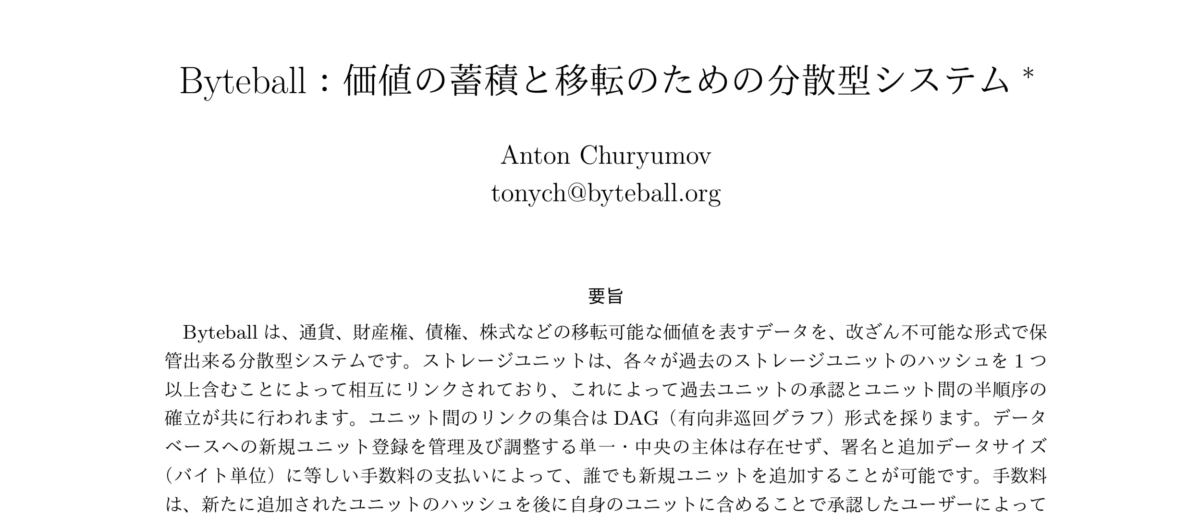Abstract: In this paper, we pointed the potential utility of peer prediction method to the existing consensus building in decentralized oracle systems where participants aim to verify the validity of input information to blockchain without relying on a trusted third party (TTP). This is important because, despite the recent expectation of implementing decentralized oracle systems, few discussions have dealt with the incentive design for their consensus building, much less the synergy with peer prediction method. Specifically, we mentioned the followings through the survey of preceding studies: (i) the current predominant method of staking that allows validators to bet the reward tokens has the limitations such as a vulnerability to strategic behavior and a lack of incentive to participate in the verification, (ii) these problems could be solved by peer prediction method which determines the amount of rewards based on the posterior probability distribution on the report of others updated by one’s own report. Peer prediction method can encourage validators to perform proper verification while supplementing the token-based rewards, and thereby can contribute to the realization of the mining mechanism based on subjective review instead of computational resources. On the other hand, several obstacles still remain to propose a practical incentive design, such as the fluctuation of token price that would prevent peer prediction from incentivizing proper verification.
Byteball Whitepaper 日本語訳の初版が完成しました
- Byteball Whitepaperの和訳がようやく完成した。
- 自分は主に8-19章を担当したが他章のレビューも行った。
- いただいた誤訳・誤字脱字の指摘は第2版に反映したい。
「ピア予測法」はまさに分散型オラクル用のメカニズムデザインだ
- 分散型オラクルはスマートコントラクトを汎用化する。
- しかし既存の手法では適切な合意が得られない。
- ピア予測法はこの課題解決に大きく貢献するだろう。
リーディングミュージアム (先進美術館) は「寄託」の改革に注力すべき
- 現代アート市場の評価軸は美術館では無く民間にある。
- 作品収集や研究活動への助成も市場への貢献は弱い。
- 寄託を税額控除オプションを伴う倉庫業へと拡張すべき。
経済学者はブロックチェーンのインセンティブ設計に着目せよ
- ブロックチェーンの本質はインセンティブ設計にある。
- インセンティブ設計は特にミクロ経済学のお家芸である。
- しかし経済学者は未だこれについてほとんど議論していない。
Byteballは「トラストレス」になり得ない
- Byteballは、設計も開発の方向性もトラストレスでは無い。
- この傾向は、witnessが分散化しても変わらない。
- 現状ではトラストレスを重視する人達がByteballも評価する傾向があるが、筆者はこれが腑に落ちない。
“ブロックチェーンを用いた知的財産管理” は課題だらけ
- 分散台帳技術を使った知的財産管理には、真正性 (authenticity) と追跡可能性 (traceability)という2つの大きな課題が存在する。
- 頑健かつ改ざん困難な形で管理出来るのはあくまで「台帳内」に「登録後」のデータなので、台帳外に独立して価値が存在する知的財産の管理は難しい。
- この問題への対処は、知的財産が持つ価値を台帳内部へ移転させるか (内部化) 別のインセンティブ設計を考えるか (外部化) の2種類だろう。
Byteballの合意形成アルゴリズムについて
- Byteballの合意形成アルゴリズムについて、ホワイトペーパーを読んだ限りでの自分の理解を記録する。
- ここで合意すべき内容とは、同じユーザーが生成したノード群の順序である。
- 具体的には 合意形成 = f (MC(best parent(witness(個人の価値観)))) という構造である。






